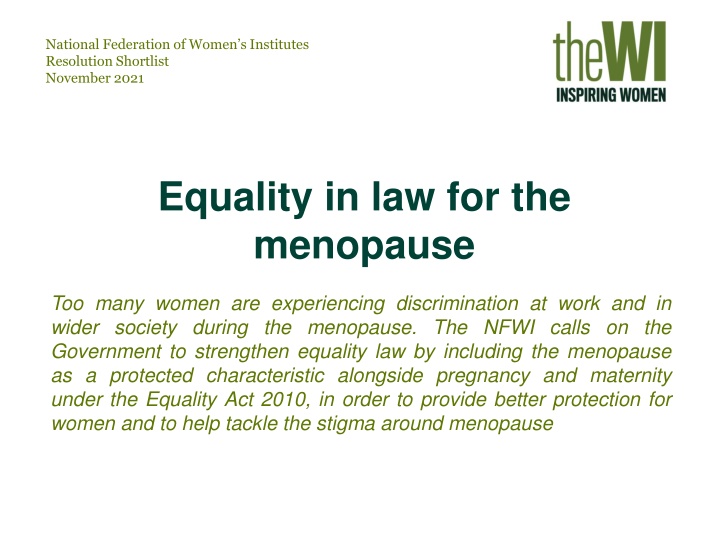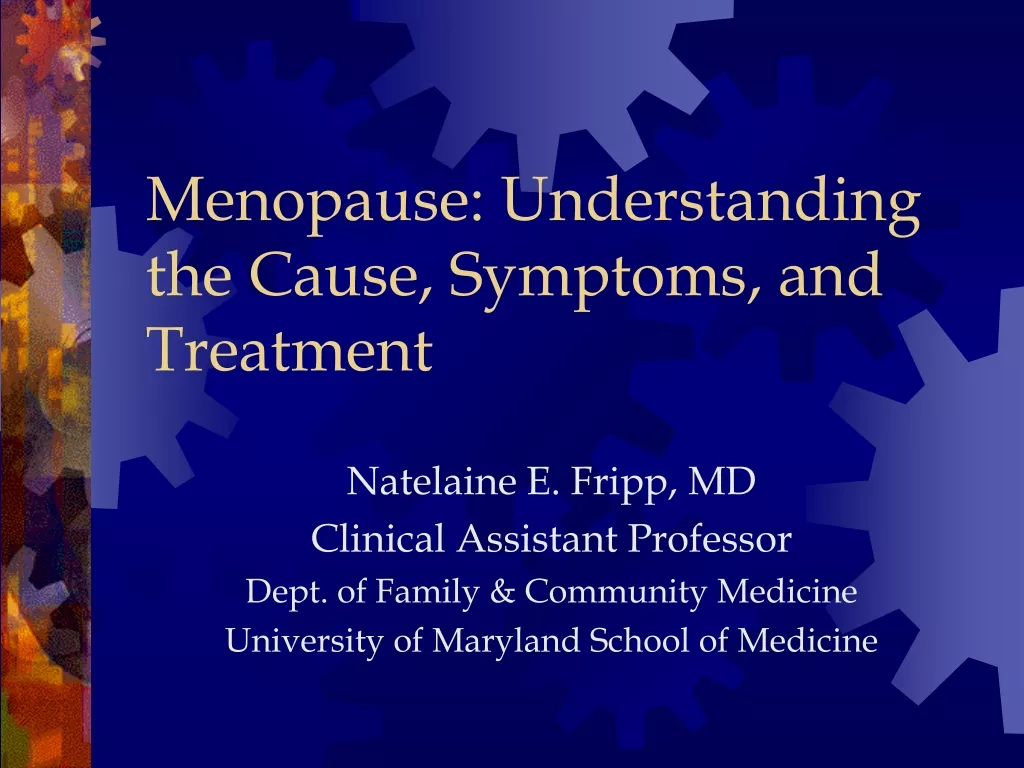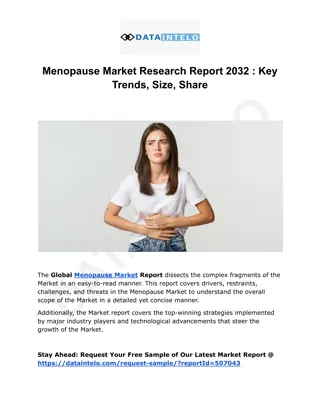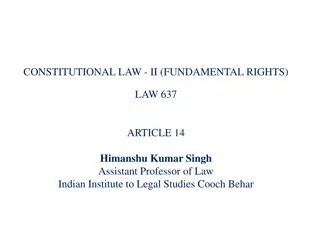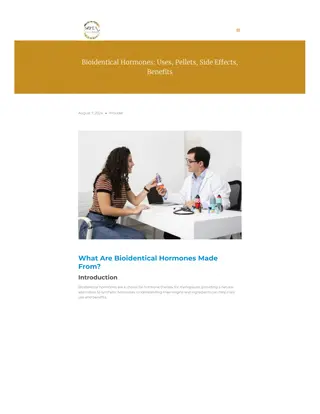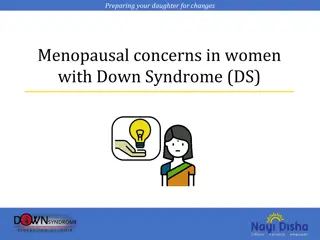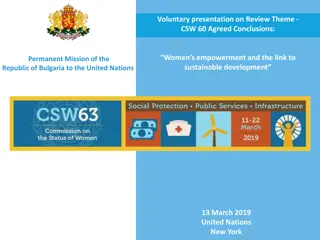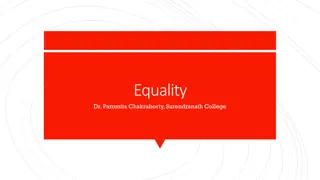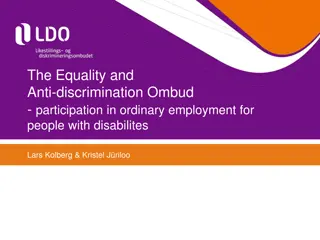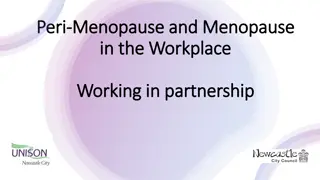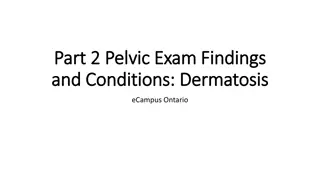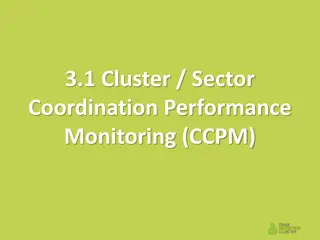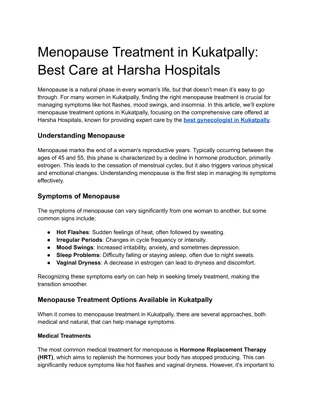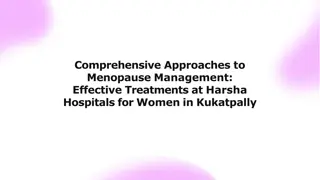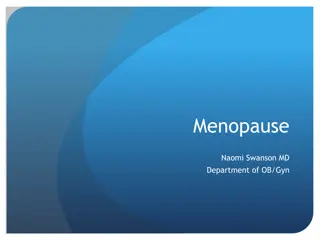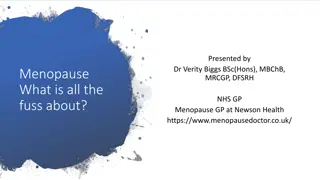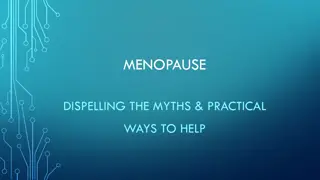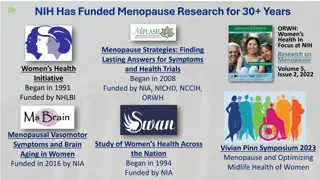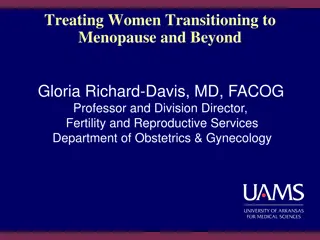Strengthening Equality Law for Menopause Protection
Advocating for menopause to be recognized as a protected characteristic under the Equality Act 2010 can provide better legal protection for women facing discrimination at work and in wider society. By raising awareness, conducting research, and engaging with policymakers, the National Federation of Women's Institutes aims to address the stigma and challenges around menopause.
Download Presentation

Please find below an Image/Link to download the presentation.
The content on the website is provided AS IS for your information and personal use only. It may not be sold, licensed, or shared on other websites without obtaining consent from the author.If you encounter any issues during the download, it is possible that the publisher has removed the file from their server.
You are allowed to download the files provided on this website for personal or commercial use, subject to the condition that they are used lawfully. All files are the property of their respective owners.
The content on the website is provided AS IS for your information and personal use only. It may not be sold, licensed, or shared on other websites without obtaining consent from the author.
E N D
Presentation Transcript
National Federation of Womens Institutes Resolution Shortlist November 2021 Equality in law for the menopause Too many women are experiencing discrimination at work and in wider society during the menopause. The NFWI calls on the Government to strengthen equality law by including the menopause as a protected characteristic alongside pregnancy and maternity under the Equality Act 2010, in order to provide better protection for women and to help tackle the stigma around menopause
Outline of presentation What is the scale of the problem? The current situation in the UK How the WI could work on this issue if it was passed Points to consider Further information
What is the scale of the problem? The menopause is a natural part of ageing that usually occurs between 45 and 55 years of age, as a woman s oestrogen levels decline. Most women will experience menopausal symptoms. Some of these can be quite severe and have a significant impact on everyday activities On average, most symptoms last around 4 years from your last period. Research by the Chartered Institute of Personnel Development (CIPD) in 2019 found that 59% of working women between the ages of 45 and 55 who are experiencing menopause symptoms said it had a negative impact on them at work. The research found that nearly a third of women surveyed (30%) said they had taken sick leave because of their symptoms, but only a quarter of them felt able to tell their manager the real reason for their absence.
The current situation in the UK The Equality Act 2010 legally protects people from discrimination in the workplace and in wider society. Menopause is not included as a specific characteristic under the Equality Act 2010. However, it is largely covered by the three protected characteristics of age, sex and disability discrimination. Including menopause as a protected characteristic under the Equality Act 2010 could make it easier for women to bring claims for discrimination. It could also help drive progress in employment policies and practices in workplaces by requiring that employers do not discriminate against those going through the menopause. In July 2021, the House of Commons Women and Equalities Committee launched an inquiry into menopause and the workplace.
How the WI could work on this resolution At local and regional levels, WI members could engage with their local MPs to raise awareness of women s experiences of this issue in the workplace and in wider society, and the need for greater protection in legislation. WIs and federations could also help to bring local stakeholders together to raise awareness of the scale of the problem by holding events. Nationally, to build the evidence base for legislation to be strengthened, the NFWI could carry out research to understand women s experiences of the menopause, such as in the workplace. Working alongside others in the sector, the NFWI could raise awareness of the issue among key policy makers and call for change, as well as contribute evidence to relevant national consultations or inquires.
Points to consider This resolution would allow the WI to challenge the taboos surrounding the menopause and supports the NFWI strategy to be a strong campaigning voice for women. As an educational charity, WI members can already share information about the menopause to raise awareness. However, a resolution on this issue (which the NFWI does not currently have) would enable the WI to launch a national campaign to call for greater protection for women through legislation. This resolution has a targeted and clear focus which could bring together the efforts of the NFWI and WI members under a single ask. However, would it provide enough opportunities for the WI to take action to address the discrimination and stigma around the menopause?
Further information NFWI Public Affairs Department E: pa@nfwi.org.uk T: 020 7371 9300 https://www.thewi.org.uk/campaigns NHS: www.nhs.uk/conditions/menopause/ The Menopause Charity: www.themenopausecharity.org/ CIPD research: www.cipd.co.uk/about/media/press/menopause-at- work#gref Video content Caroline Noakes MP interviewed on Good Morning Europe: www.youtube.com/watch?v=6PBFQWbmo2g
